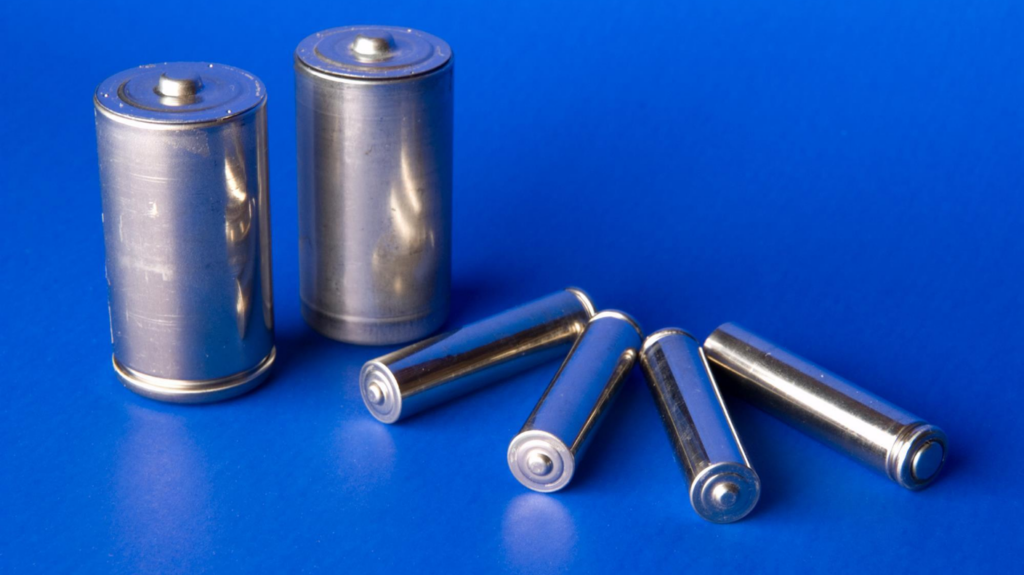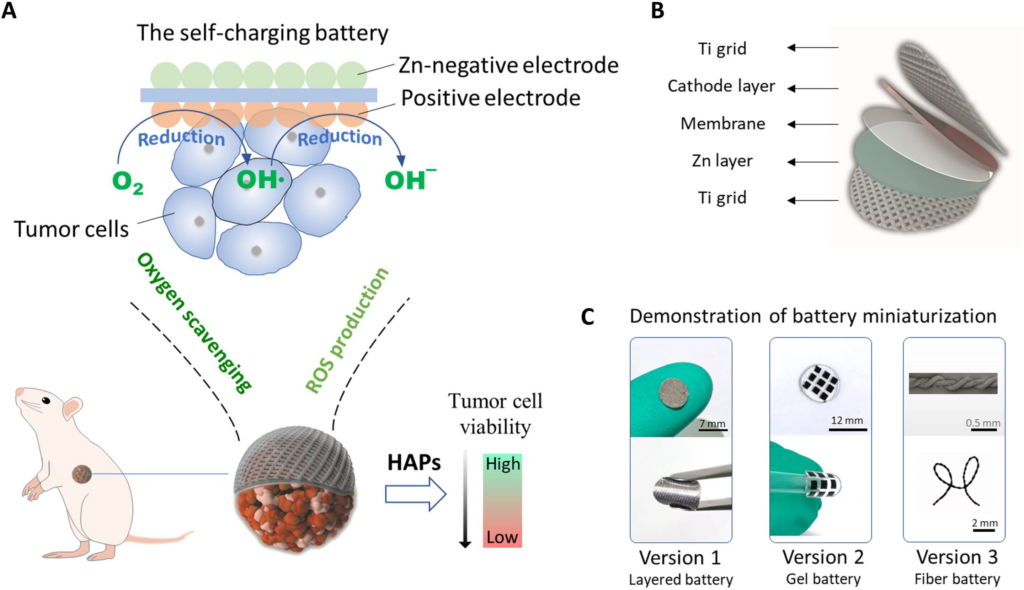Biocompatible battery suffocates cancer cells 2023

A novel implantable battery combats cancer cells by depriving them of oxygen while simultaneously generating reactive oxygen species that inhibit tumor growth. The device appears to enhance the efficacy of certain chemotherapy medications that are activated by low-oxygen environments, according to mouse studies.
Chinese researchers from Fudan University in Shanghai and Zhejiang Normal University in Jinhua developed the new device. They desired to leverage the redox reactions that occur in an electrochemical battery in order to modulate the microenvironment within cancer cells. To achieve this, they created a layered battery composed of zinc and biocompatible polyimide electrodes.
Cancer cells are deprived of oxygen thanks to a biocompatible battery.
The battery’s flexible design enables it to be wound around a tumor, thereby scavenging oxygen that would have otherwise supported the development of cancer cells.

The oxygen reduction that occurs in the battery produces reactive oxygen species that inhibit tumor growth. As the battery is capable of self-recharging under physiological conditions, it can limit the oxygen supply to the tumor indefinitely.
The battery reduced tumor size by 26% in a week when tested on rodent models. When combined with hypoxia-activated prodrugs – drugs that are activated under low-oxygen conditions – tumour size decreased by more than 90 percent. The researchers observe that these drugs had previously demonstrated “unsatisfactory efficacy” in clinical trials.
The researchers note that the redox chemistry of comparable battery systems could be applied more broadly to other therapeutic devices, for instance to modulate inflammatory microenvironments or to stimulate nerves.
